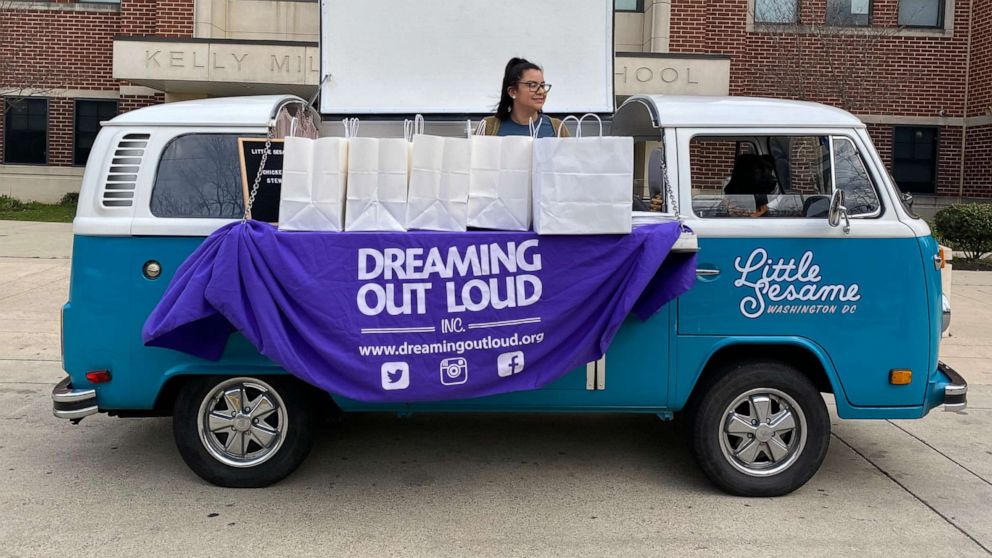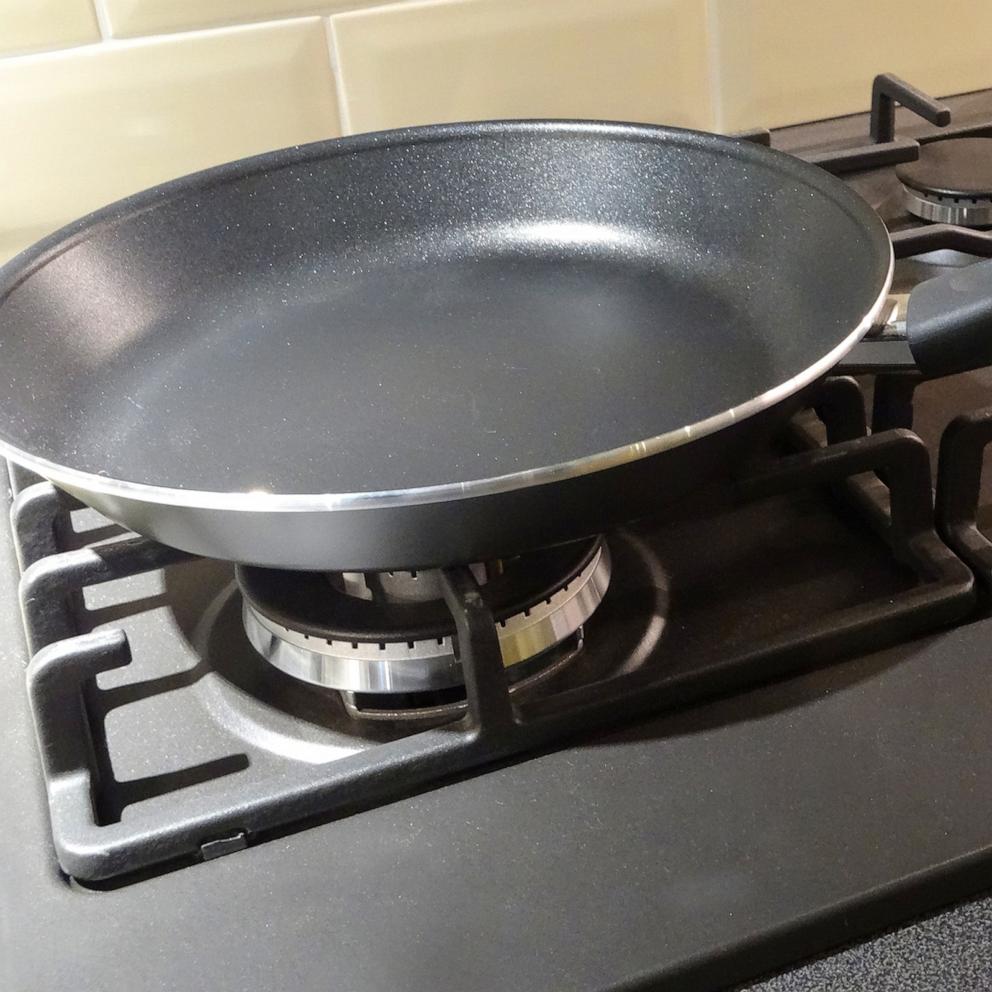An urban food desert faces novel coronavirus and hunger: Reporter's notebook

In America's urban food deserts, the novel coronavirus pandemic is making the fight against hunger that much harder.
"It's food apartheid here," said Chris Bradshaw, a nonprofit leader who's innovating ways to feed needy families in the nation's capital. "This has depleted things even more."
In normal times, finding affordable fresh food isn't easy in Ward 7 of northeast Washington, DC, where Bradshaw focuses his work. There are just two small grocery stores for the 75,000 residents in the low-income neighborhood.
The COVID-19 crisis has wiped out the shelves in those stores for days and made food staples even scarcer than they already were.
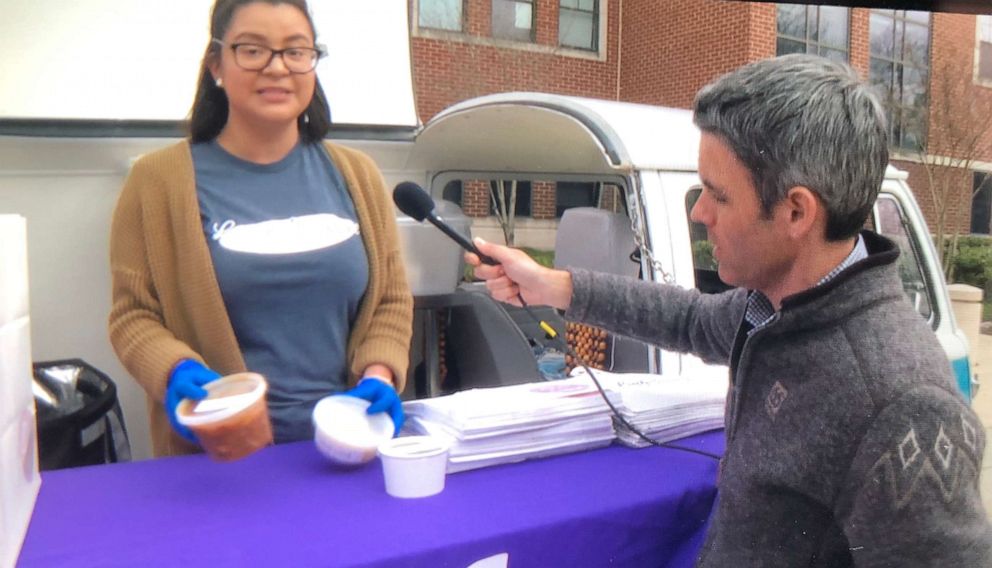
"Honestly, I'm frustrated," said 19-year-old Khalif Mathis, who brought his mother to Kelly Miller Middle School, where free lunches were being given away.
More than 2.3 million Americans live more than a mile from a supermarket and don't have a car, according to government data. One in nine Americans report struggling with hunger in U.S. Department of Agriculture surveys.
Before the crisis hit, double-digit unemployment there made affording groceries difficult for many families. Now things are about to get much worse, economists say.
"It's very tough because, first of all, the rent is coming," said Edgar Morales, a Guatemalan immigrant and father of three who had worked as a barista until he was laid off last week. "We'll see what we can do to solve that problem."
Asked if he had any savings in the bank, Morales said, "Not really."
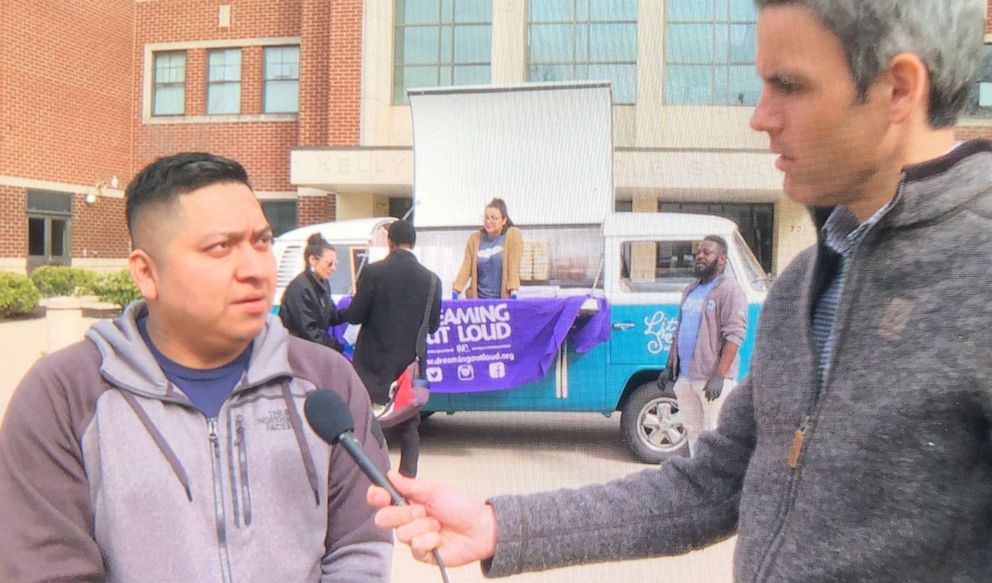
Morales drove 20-miles round trip across the capital to the pop-up food stand at the school to pick up a free meal.
Local restaurant chain Little Sesame -- closed under city orders -- has been producing free meals to-go with the ingredients that they would normally sell to the downtown lunchtime crowd.
"We're trying to use all the last ingredients we have so as not to waste," said Crystal Mendoza, who was handing out bags of chicken stew, couscous and Caesar salad. Several hundred people have been fed each day this week.
Many restaurants have banded together in an online forum to coordinate distribution of food that would otherwise go to waste.
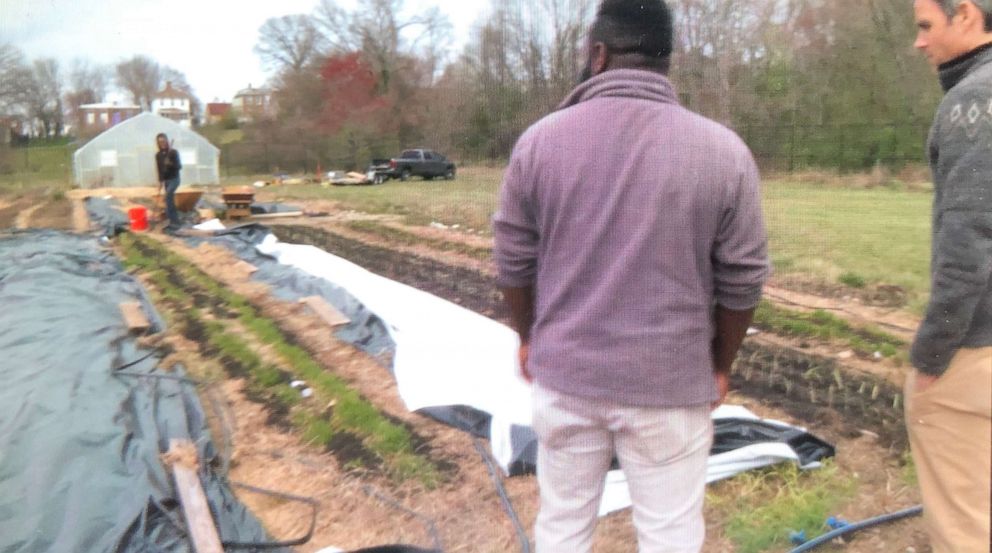
Behind the school, Bradshaw says volunteers with Dreaming Out Loud, his nonprofit food advocacy group, are urgently planting vegetables in an urban farm in anticipation of a growing need in the weeks ahead.
"We're here to grow more produce at a time like this and give it out, to be a community food source to meet the needs in this area," Bradshaw said from the field of carrots, onions and lettuces. "We're preparing to ramp up and be here no matter what."
